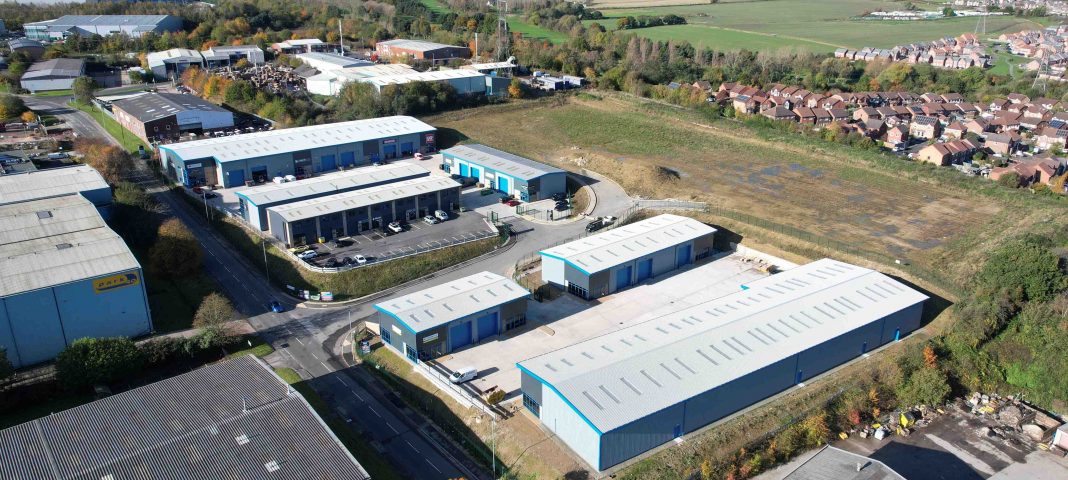Consultancy works on phase two of a £7m commercial business park aimed at transforming a former abattoir site in Wakefield have been completed by Dudleys Consulting Engineers.
The project, close to Junction 40 of the M1 motorway, has transformed a 4-acre development plot to provide 76,800 sq ft of much needed new business units, supporting around 200 jobs.
Dudleys was appointed by Frank Marshall Estates to advise on the project following its acquisition of the Flanshaw Way site in 2020. Working alongside KPP Architects and Percy Pickard Contractors, Dudleys provided advice around remediation and enabling works required for the site of the former abattoir.
The practice delivered full Civil and Structural Engineering services including review and appraisal of existing site records, co-ordination and review of additional validation investigation works and subsequent presentation to local authority consultees to support the planning process.
Dudleys Director Peter Dixon said: “Due to previous uses of the site, some remediation was needed. The development plateaus were also heavily constrained by the steep surrounding embankments and closeness to an existing substation. We worked closely with the construction team to manage arisings from the foundations and drainage excavations to carefully co-ordinate levels of construction.”
Frank Marshall Estates is a family-owned commercial development and investment company based in Bradford. Alongside its portfolio of industrial and office developments, FME pioneered its highly successful Nano Park concept which provides smaller and more refined employment spaces for starts ups and satellite operations.
The Flanshaw Way development in Wakefield has been named Balme Business Park in honour of FME’s long standing construction manager, Chris Balme.
Edward Marshall of Frank Marshall Estates, said: “We are pleased to deliver Balme Business Park, a prime site in Wakefield where there is considerable demand for smaller units. With the support of Dudleys we were able to deliver phase one during the pandemic and due to occupier demand we proceeded with phase two immediately after. The scheme has proved hugely successful, due to its location and quality of accommodation, and is now fully let.”



